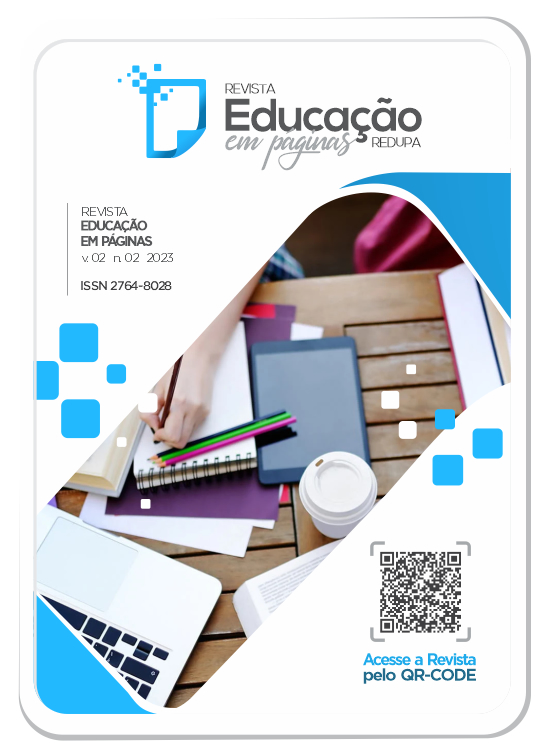Conflict management in the classroom: the case of students in the 1st year of primary education, ISCED-Cabinda
DOI:
https://doi.org/10.22481/redupa.v2.13454Keywords:
management, conflict, classroom, studentAbstract
This article is developed under the title “Conflict management in the classroom: the case of students in the 1st year of primary education, ISCED-Cabinda. Definition of the subsequent scientific problem: How to contribute to the management of conflict in the classroom, in primary school students, ISCED-Cabinda? In order to contribute to the resolution of the defined scientific problem, the following hypothesis was formulated: With the mediation of dialogue, it is possible to contribute to the management of conflict in the classroom, through the students of the primary education course, ISCED-Cabinda. In its methodological parallel, with the purpose of verifying the hypothesis formulated, the general objective was recommended: Contribute to the management of conflict in the classroom, through the students of the primary education course ISCED-Cabinda. The methods applied, especially of an empirical nature, facilitated the verification of the formulated hypothesis, since, the results, it was clear that there are insufficiencies in relation to the active participation of the contents and the ethics and professional deontology for those who fell into this situation. With regard to the intentions of the investigation summarized in this article, the general objective is considered to have been achieved, in consideration of having been notorious.
Downloads
References
CURY, C. J. (1997). O Conselho Nacional de Educação e a Gestão Democrática. Vozes: Rio de Janeiro.
FREIRE, P. (1996). Pedagogia da autonomia: sabes necessários à prática de educativa . São Paulo: Paz e Terra .
GOMES, C. A. (2009). Poder, autoridade e liderança institucional na escola e na sala de aula: perspectivas sociológicas clássicas. Ensaio: aval. pol. públ. Educ. Brasil : Rio de Janeiro.
JOVA, M. D., KIMBUCA, J. Z., & LEOPOLDO, A. C. (01 de Agosto de 2023). Concepção escolanovista de educação: realidade e prática efetiva nas escolas primarías de Cabinda de 2002 a 2021. Revista Educação em Páginas, Vitória da Conquista, v. 02, e13, p. 16.
LIBÂNEO, J. C. (2001). Organização e gestão da escola: teoria e prática. Goiânia: Alternativa.
PANIAGUA, G. P. (2007). Educação infantil: resposta educativa à diversidade. Porto Alegre: Artmed.
PEREIRA, R. R. (2011). Relação família e escola: uma parceria que dá certo. Mundo Jovem: um jornal de ideias. Porto Alegre: Editora da UFRGS.
REITORIA DA UNIVERSIDADE 11 DE NOVEMBRO . (2014). Caderno de Informações Académicas. Angola/ Cabinda: Universidade 11 de Novembro.
SILVA, M. (2003). Percepção dos alunos sobre os conflitos e violência: Um estudo em escolas do 3.º ciclo nos Açores. Lisboa: Universidade Aberta.
TAMO, K. (2012). Introdução à Gestão das Organizações: Conceitos e Estudos de casos. Luanda: Capatê.
THOMAS, K. W. (1992). Conflict and conflict management. In M. D. DUNNETTE, & L. M. HOUGH, Handbook of industrial and organizational psychology. Los Angeles: University of California.
TORREGO, J. C. (2003). Mediação de conflitos em instituições educativas - manual para formação de mediadores. Porto: ASA.
VINYAMATA, E. (2005). Aprender a partir do conflito. Tradução: Ernani Rosa. Porto Alegre: Artmed. www.Priberam, P. D. (28 de 06 de 2008-2013). http://www.priberam.pt/dlpo/implica%C3%A7%C3%B5es. Obtido em 18 de 08 de 2019, de www.intervenção.pt
Downloads
Published
How to Cite
Issue
Section
License
Copyright (c) 2023 Jeremias Zau Kimbuca

This work is licensed under a Creative Commons Attribution 4.0 International License.






